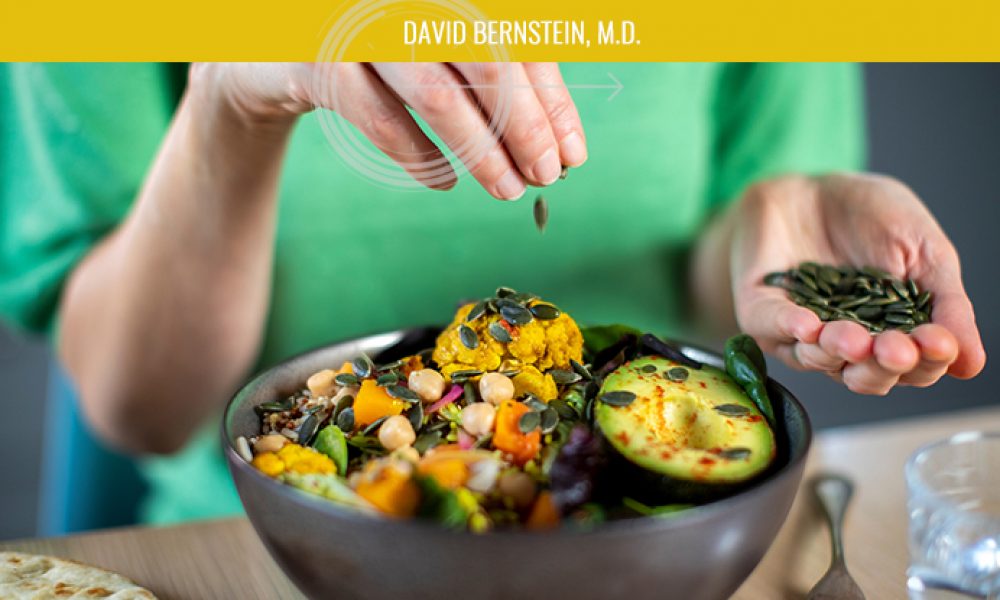I have not always had the healthiest eating lifestyle. When my mother was alive and could remember, she recalled three things about my eating routines as a child:
- I loved her cooking,
- my school lunches were the same thing with zero variation every day for an entire academic year, and
- I loved hamburgers.
She didn’t know that, while practicing medicine in Clearwater, I ate a hamburger almost every day for years.
A Healthier Diet for Today
Now I have transitioned to a much healthier eating lifestyle. Though I have regrets about what I put into my body for many years, now I do my best to offset the impact of those poor choices. It is never too late to make necessary changes to reduce health risks.
In 2007, I transitioned to a Mediterranean diet. Then in 2015, I began eating a whole-food plant-based diet totally void of animal products. While my current lifestyle may not be for everyone, a plant-based diet with small amounts of fish or chicken and little to no red meat is possible for most.
Paying Attention to Scientific Discoveries
Unfortunately, food lobbyists and politicians have interfered with government recommendations. Clinical research is clear in demonstrating the effects of what we eat on our health, especially as it pertains to heart disease—the number one cause of death in the United States. For at least the last 50 years, cardiologists have recommended a low-fat diet. More recent evidence also suggests the hazards of carbohydrates and sugar in our diet. Unfortunately, recommendations from US governmental agencies have not kept pace with more stringent recommendations provided by medical and nutritional science.
In the last decade, scientists have paid a great deal of attention to the physical and biochemical interaction between our gut (the microbiome bacteria in particular) and different organ systems in our bodies. They are discovering new and exciting developments especially regarding the ways food affects our health and the role of our gut bacteria microbiome.
It seems obvious that a diet high in fat (such as hamburgers) causes fat to be absorbed and eventually deposited in blood vessels throughout our bodies. And the pharmaceutical industry addressed that with medications (statins) to reduce cholesterol levels.
Using Diet to Lower Cardiovascular Risk
In February 2020, I read an article called, “Long-Term Changes in Gut Microbial Metabolite Trimethylamine N-Oxide and Coronary Heart Disease Risk”. It provides insight about the impact of the gut microbiome on the cardiovascular system.
The authors of the article studied the effects of a plant-based diet on a molecule called Trimethylamine N-oxide (TMAO). This molecule is produced when the gut microbiome digests nutrients commonly found in red meat. TMAO is one of the molecules that forms cholesterol plaques in blood vessels which leads to an increased risk of circulatory problems such as heart attack and strokes. Eating a plant-based diet resulted in lower levels of measured TMAO.
The Heart-Gut Connection
The studies showed the existing overall link between heart health and what we eat: the heart-gut connection. It also confirmed ways heart health is also related to bacteria in our digestive system. The findings suggest that the gut microbiome may be a new area to explore for heart disease prevention.
While my diet used to be devoted to the best hamburgers, I now enjoy my current whole-food plant-based diet. I feel confident knowing it is helping my gut microbiome become the best it can be.
As you also pursue greater gut health, try these “gut healthy” foods to improve your microbiome.
Foods Rich in Omega-3 Fatty Acids
- Fresh cold-water fish such as mackerel, salmon, tuna, herring, sardines and cod liver oil
- Nuts and seeds like flaxseeds, chia seeds, and walnuts
Fermented Foods
- Yogurt, kefir, sauerkraut (a personal favorite), and cheeses
- These have healthy microbes such as lactic acid bacteria
High-Fiber Foods
- Whole grains, nuts, seeds, fruits, and vegetables
- These all contain prebiotic fibers that are good for your gut bacteria
- Prebiotics can also reduce stress hormones in humans
Foods Rich in Polyphenol
- Cocoa, green tea, olive oil, and coffee
Foods High in Tryptophan
- Turkey, eggs and cheese
The scientific community continues to make inroads regarding the interaction of our gut microbiome and our various organ systems. We look forward to new findings that support our efforts toward a healthy heart-gut connection, another way to incorporate the nutritional aspect of the Power of 5 in our life.
Note that although there are probiotic and prebiotic supplements you can purchase, my recommendation is to modify your microbiome with the healthy foods choices above. They are Mother Nature’s ways of making us healthier.
Now it’s your turn. How are you going to work to improve your gut microbiome?
To a Long and Healthy Life,
David Bernstein, MD
P.S. Remember to follow Melissa in the Power of 5 Test Kitchen and join in the happenings!
• Like our Facebook Page
• Follow us on Instagram: @powerof5testkitchen and @drdavidbernstein
• Tag two of your friends to share this post!




